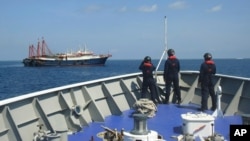Five years ago, an arbitral tribunal convened pursuant to the dispute settlement provisions of the Law of the Sea Convention rejected China’s expansive maritime claims in the South China Sea, finding them to be incompatible with the United Nations Convention on the Law of the Sea. T
he South China Sea is one of the world’s busiest shipping areas, dotted with numerous miniscule and uninhabited islands, low-tide elevations, and submerged features, many of which are surrounded by rich fishing waters. The area may also be sitting on rich mineral deposits, including oil and natural gas. China, Taiwan, the Philippines, Malaysia, Brunei and Vietnam have competing territorial claims to islands in the South China Sea and overlapping maritime claims.
Since 2013, the People’s Republic of China has exacerbated South China Sea disputes by engaging in widescale land reclamation and militarization of disputed South China Sea features. Beijing has also taken provocative actions to intimidate and bully other Southeast Asian claimants to enforce its expansive and unlawful maritime claims.
“Nowhere is the rules-based maritime order under greater threat than in the South China Sea,” said Secretary of State Antony Blinken in a written statement. “The People’s Republic of China,[or PRC], continues to coerce and intimidate Southeast Asian coastal states, threatening freedom of navigation in this critical global throughway.”
At the time of the South China Sea ruling, the tribunal stated that the PRC’s actions through activities such as island-building at Mischief Reef interfered with Manila's sovereign rights in its exclusive economic zone.
Both PRC and the Philippines, pursuant to their treaty obligations under the Law of the Sea Convention, are legally bound to comply with this decision, PRC’s objections to the decision notwithstanding. Nonetheless, the PRC rejected the decision and refused to change its conduct to comply with it.
“The United States reaffirms its July 13, 2020 policy regarding maritime claims in the South China Sea,” said Secretary Blinken, while hereaffirmed that an armed attack on Philippine armed forces, public vessels, or aircraft in the South China Sea would trigger U.S. mutual defense commitments under Article IV of the 1951 U.S.-Philippines Mutual Defense Treaty.
“We call on the PRC to abide by its obligations under international law, cease its provocative behavior, and take steps to reassure the international community that it is committed to the rules-based maritime order that respects the rights of all countries, big and small.”






